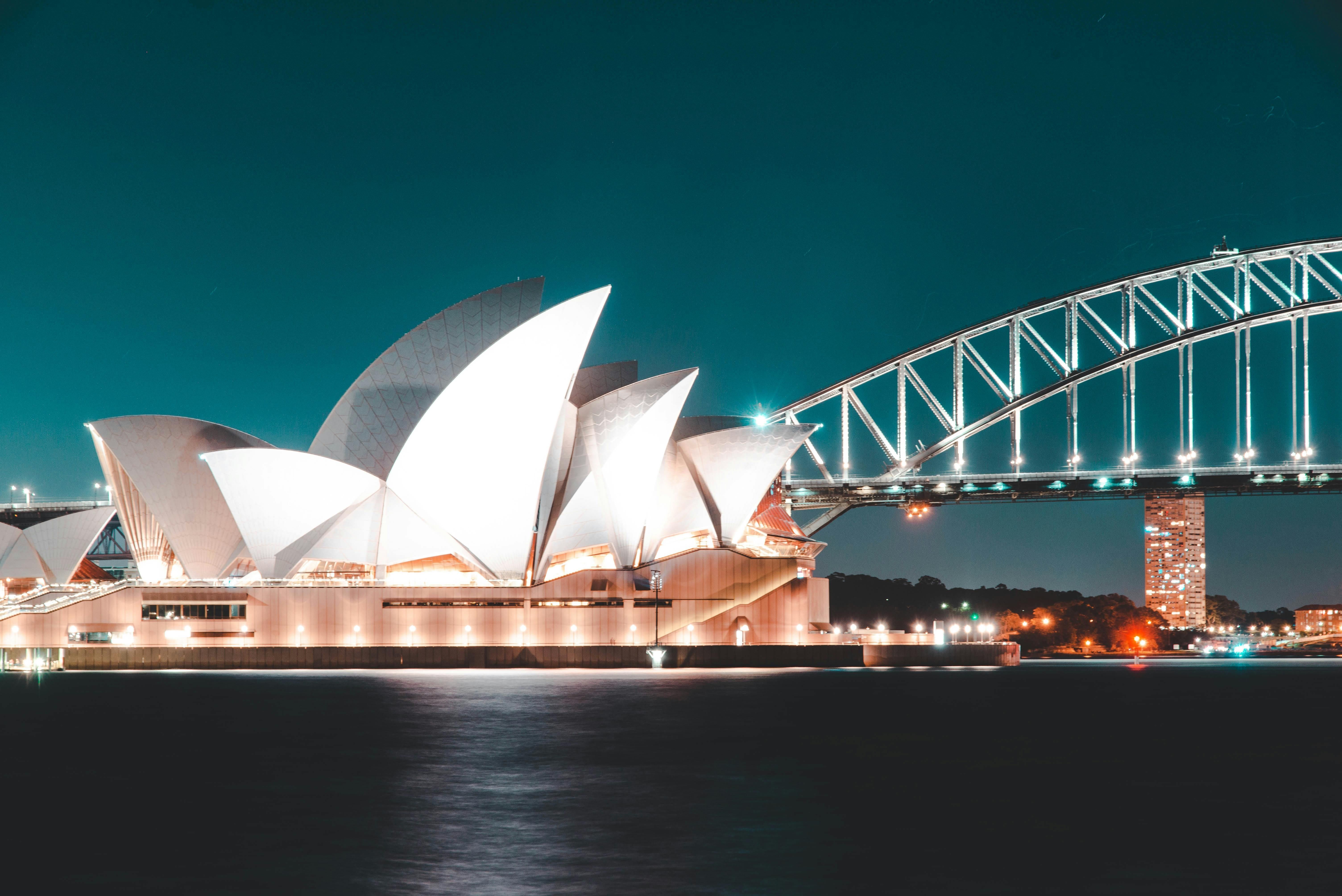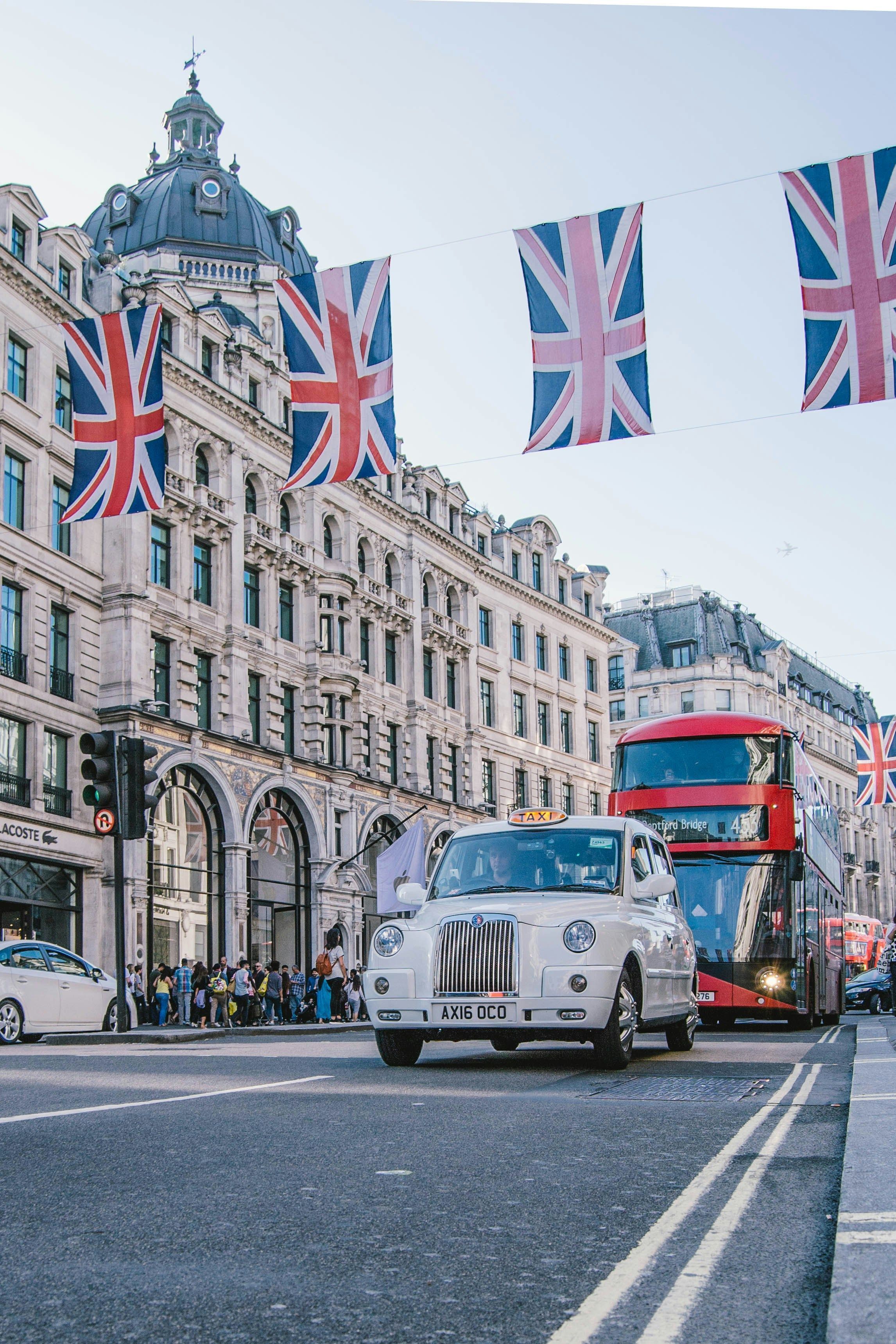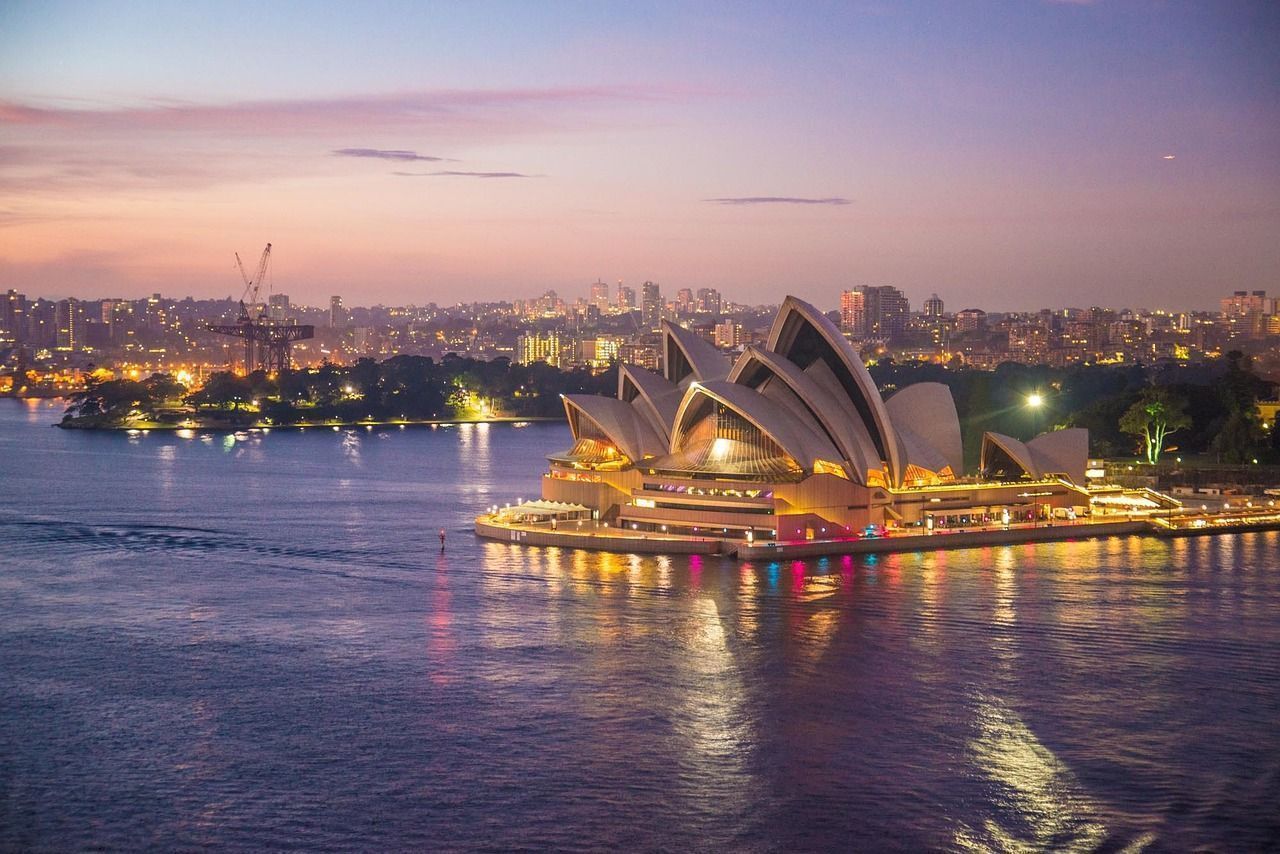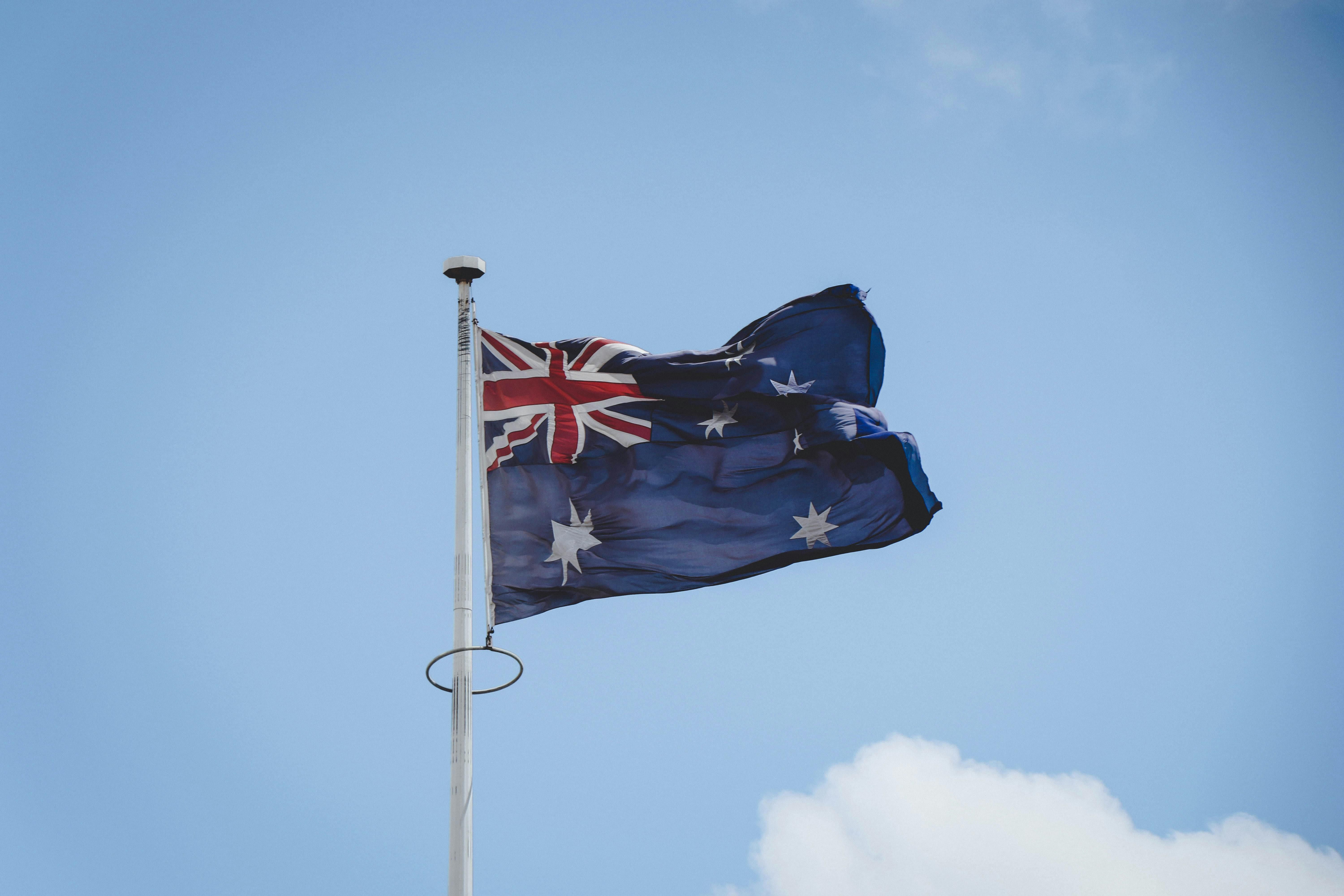
A First Timer's Guide to Moving to Australia
In this post...
- Checklist Summary for Moving to Australia
- Visa Essentials for Australia
- Finding a Place to Live in Australia
- Finding Work in Australia
- Staying Connected (Phones and Internet)
- Our Recommended Australia eSIM Plans:
- Healthcare and Health Insurance in Australia
- Cost of Living Breakdown for Australia
- Final Tips for Moving to Australia
Thinking about starting a new life in Australia? You are not alone. Every year, hundreds of thousands of people make the move to the Land Down Under. In the 2023 to 2024 financial year, for example, around 446,000 people migrated to Australia, drawn by its sunshine, open spaces, friendly locals and relaxed lifestyle.
Perhaps you have landed your dream job in Sydney’s buzzing business district, or you are heading to Melbourne to study at one of its world-class universities. Maybe you are swapping grey winters for year-round warmth in Brisbane, or looking for a slower pace of life in Adelaide or Perth. You might even be dreaming of a complete change, trading your daily commute for beach walks or the sound of city traffic for the call of the bush.
Whatever your reason, moving to Australia is a big step that brings both excitement and challenge. From sorting out visas and finding somewhere to live, to arranging your phone, bank account and healthcare, there is plenty to organise before you can truly settle in. This guide takes you through the essentials and gives a realistic picture of what you need and what you should plan for when moving to Australia.
Checklist Summary for Moving to Australia
- ✅ Visa and documents: Secure the correct visa and keep both digital and printed copies of your passport, visa grant notice and supporting papers.
- ✅ Accommodation: Have a temporary address or aim to finalise long-term housing quickly.
- ✅ Phone and internet: Get connected early so you are not scrambling on arrival. We recommend using an eSIM on arrival.
- ✅ Job: If you are coming for work, try to have an offer or internship confirmed; if not, research the local job market.
- ✅ Bank account: Open an Australian bank account soon after arrival.
- ✅ Healthcare and insurance: Understand what is covered (public or private) under your visa.
- ✅ Packing: Bring essentials and check what you cannot bring. Australia has very strict biosecurity rules.
Visa Essentials for Australia
You will need a valid visa to live in Australia. The options depend on your reason for moving:
- Skilled work visas if your occupation appears on the Australian skills list
- Partner or family visas if you are joining a partner or family member who is an Australian citizen or permanent resident
- Student visas for those studying, which usually permit limited working hours
- Working holiday or temporary work visas for younger travellers
Always confirm eligibility and requirements with the Australian Department of Home Affairs before applying.
Finding a Place to Live in Australia
Housing costs differ greatly between cities. Below are sample average prices for each major city.
Rental Costs (Approximate, Weekly):
- Sydney: Houses around A$1,090 per week, units around A$720 per week.
- Melbourne: One-bedroom apartment in the city centre around A$550 per week.
- Brisbane: One-bedroom apartment in the city centre around A$540 per week.
- Adelaide: Houses or larger flats from A$450 to A$550 per week.
- Perth: One-bedroom apartment around A$520 per week.
Additional housing costs, including electricity, gas, water and internet, can add between A$300 and A$400 per month.
A rental bond (deposit) is typically equal to four weeks’ rent. Consider proximity to work, public transport and amenities when choosing a suburb.
Finding Work in Australia
If you are relocating for employment:
- Research which sectors are in demand, such as healthcare, engineering, information technology, mining and education.
- Check which opportunities will give you sponsorship opportunities.
- Check whether your qualifications require recognition by an Australian professional body.
- Prepare an Australian-style CV that is concise and focused on outcomes.
- Once employed, apply for a Tax File Number from the Australian Taxation Office to ensure the correct tax rate.
- Compare salary levels with the cost of living in your chosen city.
Staying Connected (Phones and Internet)
- Mobile: The main providers are Telstra, Optus and Vodafone Australia. Choose one with good coverage in your area, especially if you plan to travel regionally.
- Internet: Unlimited home broadband plans cost around A$70 to A$80 per month.
- If you move frequently, consider mobile data plans or portable Wi-Fi devices.
Tip: We recommend using an Australia eSIM when you first arrive down under. This will have you connected on arrival and help keep you connected while you sort out all of your essentials as you settle into your new Aussie life.
Our Recommended Australia eSIM Plans:
Healthcare and Health Insurance in Australia
- Permanent residents and many visa holders are eligible for Medicare, Australia’s public health system.
- Temporary visa holders usually need private health insurance or must pay for services directly.
- Private cover can include dental, optical and private hospital care with shorter waiting times.
- Register with a local GP in Australia soon after arrival.
- The emergency number in Australia is 000.
Cost of Living Breakdown for Australia
Below are typical 2025 monthly costs for a single person or couple in major Australian cities.
Sydney
- Rent or housing: Around A$1,090 per week for a house or A$720 per week for a unit.
- Utilities: Approximately A$350 to A$400 per month.
- Food and groceries: Roughly A$1,000 per month for a couple.
- Eating out: Dinner for two around A$140, cinema tickets A$24 each, gym membership about A$90 per month.
- A single person typically spends about A$3,850 per month in total living costs.
Melbourne
- Rent or housing: Around A$550 per week for a one-bedroom city apartment.
- Utilities and internet: About A$330 per month.
- Groceries: Around A$160 per week for a typical household.
- Dining out: Meal for two about A$120.
- A single person typically spends about A$3,450 per month overall.
Brisbane
- Rent or housing: Around A$540 per week for a one-bedroom city apartment.
- Utilities: Roughly A$230 per month for electricity and gas, plus A$80 each for water and internet.
- Dining out: Meal for two about A$110, cinema ticket A$20, gym membership A$70 per month.
- A couple typically spends around A$4,450 per month with rent about A$2,530.
Adelaide
- Rent or housing: Around A$500 per week for a standard home.
- Utilities: Roughly A$300 per month.
- A couple’s average total monthly expenses are about A$3,200 to A$3,400.
Perth
- Rent or housing: Around A$520 per week for a one-bedroom apartment.
- Utilities: Roughly A$320 per month.
- A single person’s monthly living costs average about A$3,000.
Final Tips for Moving to Australia
Australia offers an enviable quality of life, outdoor living, multicultural cities and a welcoming atmosphere. Costs, however, vary widely depending on location and lifestyle.
Practical budgeting advice:
- Choose your city and suburb wisely. Smaller capitals and outer suburbs are far more affordable.
- Aim to keep housing costs below 30 to 35 per cent of your monthly income.
- Remember one-off relocation costs such as visa fees, flights and initial rental bond payments.
- Set aside funds for unexpected expenses during your first few months.
Arriving well prepared makes the transition smoother. With thoughtful planning, realistic budgeting and an open mind, you will be ready to settle into Australian life and enjoy everything it has to offer.
Related Articles
 A Beginner’s Guide to Moving to the UK
A Beginner’s Guide to Moving to the UKNo matter where you’re moving from, there are a few things you should know before booking your flight.
Read More Travel to Australia: Best eSIMs for Australia
Travel to Australia: Best eSIMs for AustraliaThe best eSIM providers to consider for your Australian adventure from data only eSIM plans to Australia eSIM plans with data roaming.
Read More Your First-Timer’s Guide to Exploring Australia
Your First-Timer’s Guide to Exploring AustraliaThis guide covers everything you need to know, including visas, budgeting, must-see destinations, travel tips, and how to stay connected with a Sim Local eSIM.
Read MoreStay Connected Across Australia
Stay Connected Across Australia